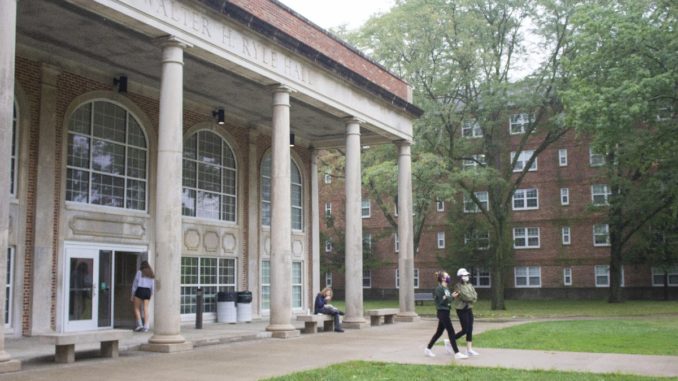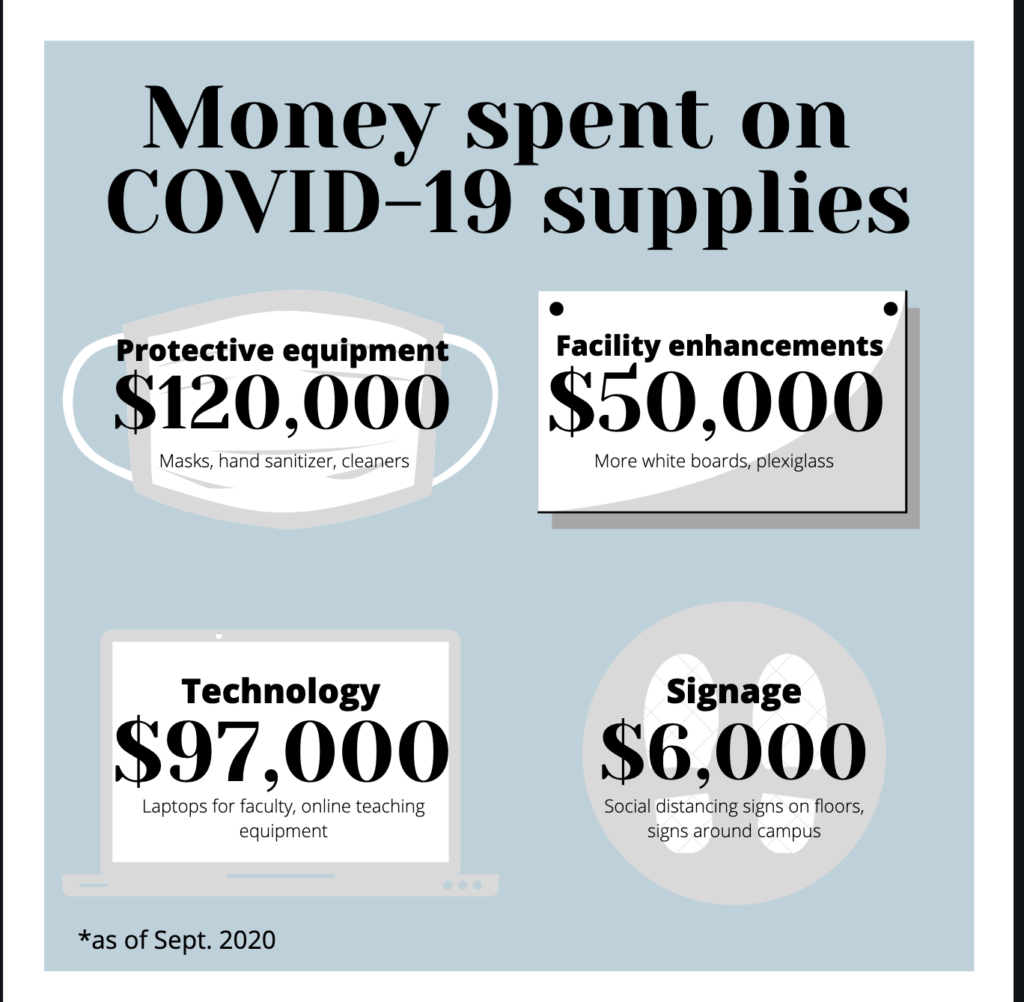
To prepare for students on campus, Truman State University had to secure supplies and funding for certain COVID-19 precautions.
Dave Rector, vice president for administration, finance and planning, said the University has spent roughly $256,000. This includes $175,000 spent by the University as well as $81,000 in received assistance from Adair County via federal funds.
However, all the money spent is being reimbursed by the state and federal governments. Rector said the Governor’s office wanted schools to reopen, so they allocated Coronavirus Relief Fund money to reimburse universities around Missouri for COVID-related expenses.
The reimbursements stand from April of this year to Dec.1.
The CRF was given to the state from the federal government and then divided up to universities by enrollment size.
Rector said Truman has had no problems when it comes to COVID-related deficits or cash flow thanks to the reimbursements.
Rector explained that the reimbursement also counts toward staffing. When students moved out in the spring, staff had to go through and clean all the dorms. Rector said without the money from the state, staff members would have had to be furloughed and taken off the payroll.
He said the hardest part has been getting supplies from vendors.
Back in March, the University put in orders for hand sanitizer dispensers, Rector explained, and since then they have gone through three vendors trying to fulfill that order. Rector said getting masks, hand sanitizer and disinfectant wipes has been difficult.
One thing the University has not had to pay for is a rapid testing machine.
Brenda Higgins, associate vice president for student health and wellness, said the University and the Adair County Health Department often collaborate on communicable diseases.
Jim LeBaron, administrator at the Adair County Health Department, said his department received the Abbott ID Now COVID-19 analyzer several months ago from the Missouri Department of Health and Senior Services that was placed at the Northeast Regional Medical Center. The department then purchased a second and third testing machine that it gave to the Truman Health Center and to Complete Family Care, where the Kirksville R-III School District has associated medical staff. The machine was installed on campus right before Truman Week started.
Listen to this week’s episode of Dry Ink on this story
LeBaron said the department bought both testing machines for around $2,500 each, and they used money from the Coronavirus Aid, Relief, and Economic Security Act to pay for it.
The department is given about 12 boxes of tests a week, with approximately 24 testing kits in each box, and those boxes are being divided up to the three local testing machines, LeBaron said. However, his department has recently asked the state to increase the boxes to 15 a week.
Higgins said the Abbott ID Now rapid-testing machine would increase how many students could be tested on campus and take the stress off of other testing sites within the community.
Higgins said rapid testing is beneficial for the University, as identifying positive cases rapidly can boost contact tracing efforts and keep case numbers down.
As for how accurate the Abbot rapid tests are, Higgins said that is controversial, but not an anomaly in COVID-19 testing.
Higgins said the rapid tests are very specific, and when they pick up a positive there is 98-99% assurance it is positive. However, when it picks up a negative, it can be a false negative anywhere from 5-35% of the time.
Higgins said to combat the false negatives, the Health Center does a rapid test, and if someone is very symptomatic or has had contact with a positive case, they may recommend following up with a polymerase chain reaction test.
The PCR test gets sent out to a lab, where it takes one to two days to get the results but the tests are more accurate.
Higgins said Truman has administered 125 rapid tests with 27 positives, while out of 59 PCR tests, 0.03% had positive results.
Rector said in talking with other college campuses in Missouri, he doesn’t think anyone else has a rapid test on campus, especially for free.
At other universities they might have to send COVID tests out of state, costing about $100 per test plus a two-day wait to get results, Rector said.
Rector also said Northeast Regional Medical Center has been running athletic tests for free as well.
“Just because you get a negative test does not mean you should ignore the masks or physical distancing,” Higgins said.

